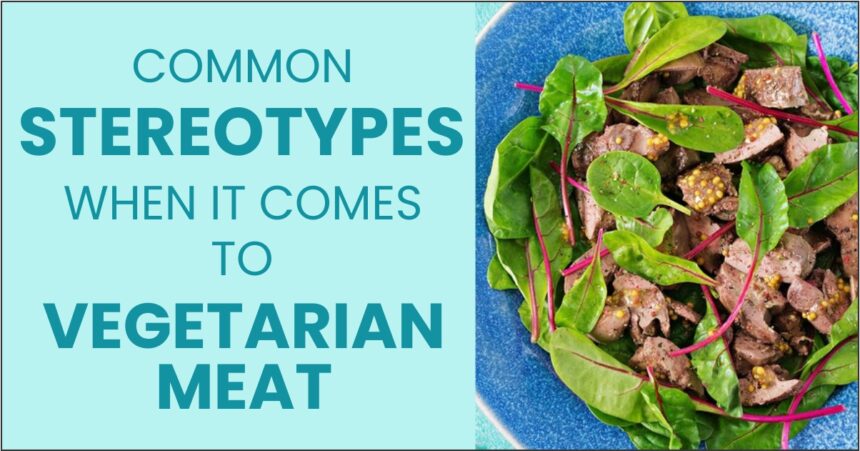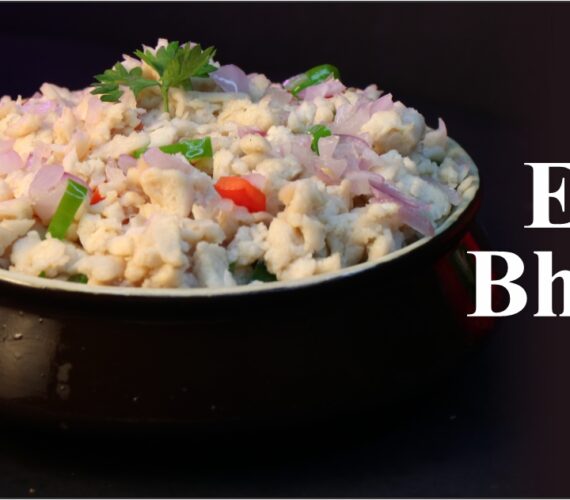Introduction
One of the most persistent stereotypes surrounding vegetarian meat is that it lacks flavor and is generally bland. Many skeptics believe that nothing can compare to the taste of real meat. However, thanks to advances in food technology and culinary innovation, vegetarian meat options have significantly improved in taste and texture over the years. Today, you can find a wide array of plant-based products that replicate the taste and succulence of meat, satisfying even the most discerning palates.
1. Vegetarian Meat is Tasteless and Bland
One of the most persistent stereotypes surrounding vegetarian meat is that it lacks flavor and is generally bland. Many skeptics believe that nothing can compare to the taste of real meat. However, thanks to advances in food technology and culinary innovation, vegetarian meat options have significantly improved in taste and texture over the years. Today, you can find a wide array of plant-based products that replicate the taste and succulence of meat, satisfying even the most discerning palates.
2. Vegetarian Meat is Unhealthy
Another common misconception is that vegetarian meat is inherently unhealthy. Some argue that processed plant-based substitutes are loaded with chemicals and additives, making them less nutritious than traditional meat. While it’s true that some products may contain preservatives, this is not representative of the entire category. Many vegetarian meat options are made from wholesome, natural ingredients, and are often lower in saturated fats and cholesterol, offering a healthier alternative to meat.
3. Vegetarian Meat is Expensive
There is a prevailing belief that vegetarian meat products are expensive, putting them out of reach for the average consumer. While it’s true that some specialty products can be on the pricier side, the same can be said for premium cuts of meat. In reality, the market for vegetarian meat has grown significantly, leading to increased competition and more affordable options. Additionally, as the demand for sustainable and eco-friendly food rises, more cost-effective vegetarian meat choices are becoming available.
4. Vegetarian Meat is Only for Vegetarians
Perhaps one of the most misleading stereotypes is that vegetarian meat is exclusively meant for vegetarians or vegans. In truth, these products appeal to a wide range of individuals, including flexitarians, those looking to reduce their meat consumption, and even meat lovers curious about exploring plant-based options. Vegetarian meat offers a gateway for people to experiment with new flavors while still enjoying familiar dishes.
Also Check :- Vezlay Veg Chicken
5. Vegetarian Meat Is Hard to Cook
Some individuals shy away from vegetarian meat because they believe it’s challenging to cook or requires specific culinary skills. However, preparing vegetarian meat is no more difficult than cooking traditional meat. In most cases, you can use vegetarian meat as a direct substitute in your favorite recipes or explore various plant-based recipes that cater to your preferences and cooking abilities.
6. Vegetarian Meat Is a Recent Trend
While vegetarian meat has seen a surge in popularity recently, its roots go back much further. Ancient civilizations often relied on plant-based protein sources, and vegetarian meat alternatives have been part of various cultures for centuries. The modern-day focus on sustainability and environmental consciousness has revitalized interest in these age-old alternatives.
7. Vegetarian Meat Is Unavailable in Restaurants
It’s a misconception that vegetarian meat options are not widely available in restaurants. In reality, numerous eateries, including fast-food chains and fine-dining establishments, now offer vegetarian meat choices on their menus. As consumer demand continues to rise, more restaurants are expanding their offerings to cater to a diverse clientele.
8. Vegetarian Meat Cannot Satisfy Protein Requirements
There is a belief that vegetarian meat cannot provide sufficient protein for a balanced diet. In reality, many vegetarian meat products are rich in protein, often derived from sources like soy, legumes, or mycoprotein. When combined with other plant-based foods, vegetarian meat can easily meet a person’s daily protein needs.
9. Vegetarian Meat Is Not Environmentally Friendly
Critics often argue that producing vegetarian meat requires excessive resources and contributes to environmental degradation. However, compared to conventional meat production, the environmental impact of plant-based alternatives is generally lower. Plant-based products tend to have a smaller carbon footprint, consume less water, and reduce deforestation associated with livestock farming.
10. Vegetarian Meat Is Processed Food
While some vegetarian meat products are processed, not all fall into this category. Numerous options are minimally processed and made from whole, natural ingredients. It’s essential for consumers to read product labels and opt for healthier choices when selecting vegetarian meat products.
Also Check :- Disadvantages of eating non veg
11. Vegetarian Meat Is Not Filling
There’s a misconception that vegetarian meat won’t keep you full and satisfied. On the contrary, many vegetarian meat products are high in fiber and protein, making them just as filling as their meat counterparts. Including a variety of vegetables and grains in vegetarian meat formulations ensures a well-rounded and satisfying meal.
12. Vegetarian Meat Is Lacking in Variety
Another stereotype is that vegetarian meat offerings are limited and lack diversity. However, the plant-based market is continually evolving, and there is now an extensive selection of vegetarian meat products available, ranging from burgers and sausages to deli slices and even seafood alternatives.
13. Vegetarian Meat Is Only for Younger Generations
Some may perceive vegetarian meat as a trend limited to younger generations. However, people of all ages are embracing plant-based alternatives for various reasons, including health, environmental concerns, and animal welfare. The appeal of vegetarian meat is multi-generational and extends beyond age demographics.
14. Vegetarian Meat Is Unappealing to Kids
Parents may worry that their children won’t enjoy vegetarian meat and resist incorporating it into their diets. Yet, many plant-based products are formulated to cater to children’s taste preferences. With creative cooking and presentation, vegetarian meat can be just as enticing to kids as any other meal.
15. Vegetarian Meat Is Less Filling Than Meat
Lastly, there’s a stereotype that vegetarian meat won’t provide the same satiety as real meat. However, studies have shown that well-balanced vegetarian meals can be just as filling and satisfying as their meat-based counterparts. The key lies in understanding the nutritional value of plant-based ingredients and crafting meals that fulfill dietary requirements.
16. Vegetarian Meat Is Unappetizing in Appearance
There’s a stereotype that vegetarian meat looks unappealing and lacks the natural color and texture of real meat. However, modern plant-based products are designed to resemble meat visually, making them more visually appealing to consumers.
17. Vegetarian Meat Is Hard to Find in Grocery Stores
Some people believe that vegetarian meat is only available in specialty stores or health food shops, making it difficult to access. In reality, most major grocery stores now carry a wide range of vegetarian meat options.
18. Vegetarian Meat Is Not Filling Enough for Big Appetites
There’s a misconception that vegetarian meat won’t satisfy individuals with hearty appetites. In truth, many plant-based products are rich in protein and fiber, making them filling and satisfying for all appetites.
19. Vegetarian Meat Is a Passing Trend
Critics often dismiss vegetarian meat as a passing fad that will lose its popularity over time. However, the growing interest in plant-based diets suggests that vegetarian meat is here to stay as a permanent dietary choice for many.
20. Vegetarian Meat Is Inferior to Real Meat in Nutrition
Some believe that vegetarian meat lacks essential nutrients found in real meat, such as iron and B vitamins. However, many vegetarian meat products are fortified to provide the necessary nutrients for a balanced diet.
21. Vegetarian Meat Is Only for Weight Loss Diets
There’s a stereotype that vegetarian meat is primarily consumed by those on weight loss diets. In reality, people from all walks of life enjoy vegetarian meat for various reasons beyond weight management.
22. Vegetarian Meat Is a Sacrifice for Health-Conscious Individuals
It’s commonly assumed that people who choose vegetarian meat do so solely for health reasons and sacrifice taste. However, many individuals genuinely enjoy the flavors and ethical considerations behind plant-based options.
23. Vegetarian Meat Is Limited to Burgers and Sausages
While products like veggie burgers and sausages are popular, there’s a stereotype that vegetarian meat options are limited to these classic choices. In fact, the market offers an extensive variety of alternatives, from meatballs to nuggets and more.
24. Vegetarian Meat Is Not Suitable for Traditional Family Meals
Some individuals believe that vegetarian meat won’t fit into traditional family meals and gatherings. However, plant-based alternatives can seamlessly integrate into family recipes and are enjoyed by people of all ages.
25. Vegetarian Meat Is Just a Marketing Gimmick
Skeptics may dismiss vegetarian meat as a marketing gimmick to capitalize on health and environmental trends. However, the growing body of scientific research and consumer demand supports its validity and benefits.
These stereotypes highlight the misconceptions that surround vegetarian meat. In reality, it is a diverse and evolving category that offers a viable and sustainable option for individuals looking to explore alternative dietary choices. As consumers become more informed about the benefits of plant-based diets, these stereotypes are gradually being debunked, leading to a more inclusive and accepting approach to vegetarian meat.
Conclusion
In conclusion, the stereotypes surrounding vegetarian meat are often based on outdated information or misconceptions. As the world embraces sustainability and healthier lifestyles, plant-based alternatives have become more prevalent and accessible. By challenging these stereotypes and being open to trying new options, individuals can discover a wealth of delicious and nutritious vegetarian meat products that align with their values and tastes.








